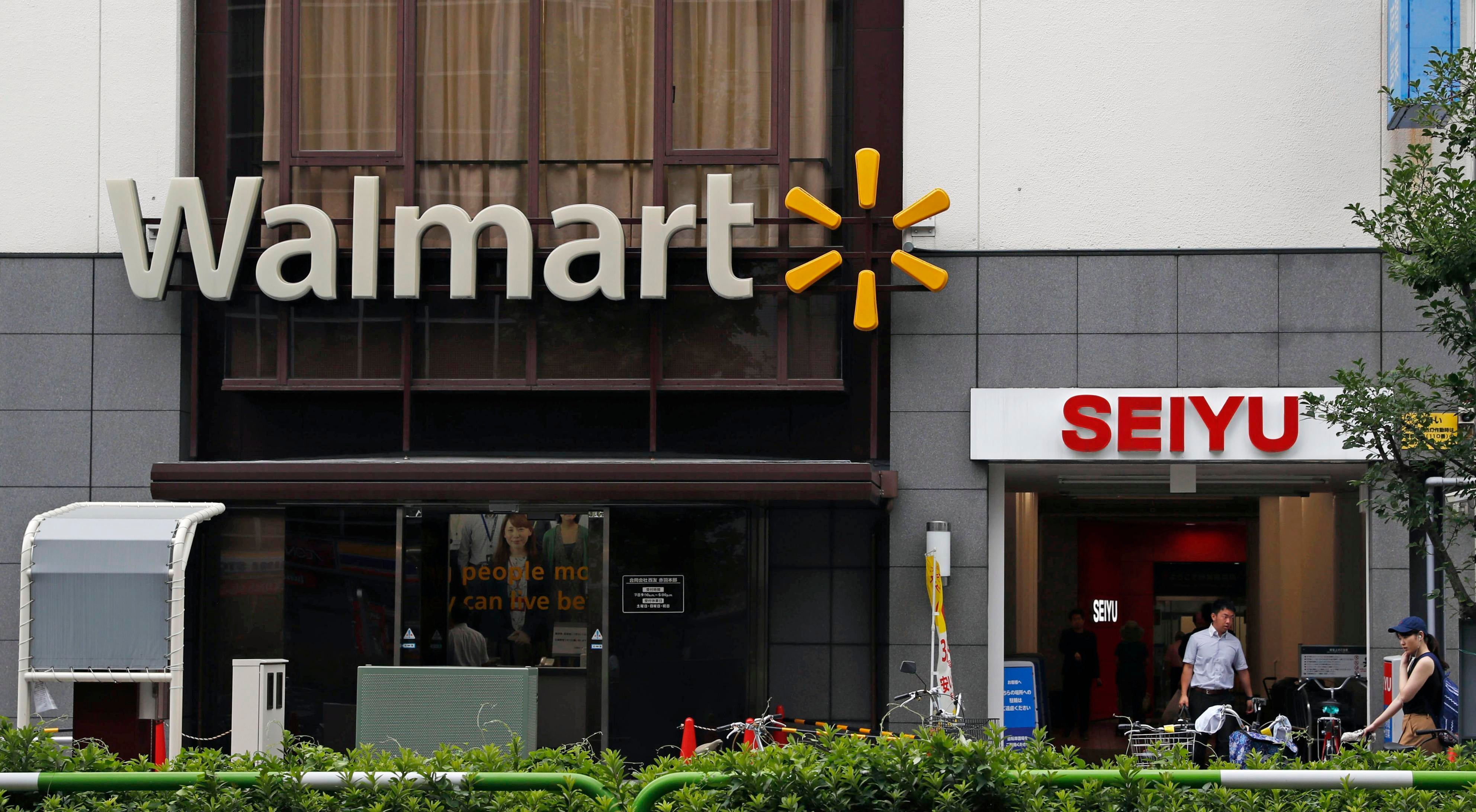Walmart sells majority stake in Japanese Seiyu supermarket
U.S. retailer Walmart is selling 85% of its stake in its wholly owned Japanese supermarket subsidiary Seiyu, while retaining a 15% stake

U.S. retailer Walmart is selling off 85% of its wholly owned Japanese supermarket subsidiary Seiyu, while retaining a 15% stake, in a deal valued at 172.5 billion ($1.6 billion), the companies said Monday.
KKR & Co., a global investment firm, will purchase a 65% stake, while Japanese online retailer Rakuten will acquire a 20% stake from Walmart, they said in a statement.
KKR and Rakuten will bring their expertise in e-commerce and global digital marketing to strengthen Seiyu in the increasingly digital shopping age, according to the statement.
Seiyu Chief Lionel Desclee will continue to lead in the transition period, after which he will take on a new role at Walmart, the world’s biggest retailer.
A board will be set up, made up representatives from KKR, Rakuten and Walmart, and a new CEO appointed, the companies said.
The transaction, subject to regulatory approval, is expected to close in the first quarter of 2021.
Bentonville, Arkansas-based Walmart, which also runs stores in Europe and other parts of Asia, entered the Japanese market with its purchase of a small stake in Seiyu in 2002, promising to bring its “every day low price” to Japan. Seiyu became Walmart’s group company in 2008.
The Japanese retail market has often proved a challenge for foreign players, and Walmart’s arrival was met with skepticism from the start.
Japanese buyers tend to be finicky and have at times shunned products viewed as cheap or of poor quality. But that trend has rapidly changed, and discount stores are increasingly popular as more Japanese seek out bargains.
The other hot trend all over the world is the move toward online shopping, a shift that’s accelerated amid the coronavirus pandemic.
Rakuten and Walmart have already been collaborating, including in online shopping and ebook-service support.
“We look forward to accelerating digital transformation of Seiyu brick and mortar retail and further merging the best of offline and online retail,” Kazunori Takeda, a senior executive at Rakuten, said in a statement.
Seiyu will continue to have access to Walmart’s global sourcing for products. Scale, in theory, lowers prices.
Founded in 1963, Seiyu has more than 300 stores across Japan employing more than 34,000 people. With fiscal year 2020 revenue of $524 billion, Walmart employs more than 2.2 million “associates,” as its workers are called, worldwide. In the U.S., Walmart’s online sales have been thriving during the pandemic but is still running a distant second to Amazon in that sector.
___
Yuri Kageyama is on Twitter https://twitter.com/yurikageyama
Bookmark popover
Removed from bookmarks